Animals
-
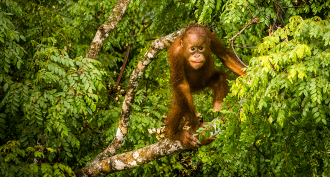 Environment
Environment‘Boot camp’ teaches rare animals how to go wild
Animals raised in captivity cannot safely re-enter the wilds without first understanding how to find food and avoid becoming a predator’s lunch. Scientists are helping some species learn this.
-
 Animals
AnimalsOrca snot leads to a whale of a science-fair project
DNA found in the mucus of orcas suggests that even though the traits of family pods may differ, these marine mammals all appear to belong to a single species.
By Sid Perkins -
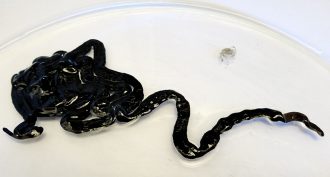 Animals
AnimalsChemicals from the world’s longest animal can kill cockroaches
The stuff in this sea worm’s slime can kill off green crabs, too.
By Susan Milius -
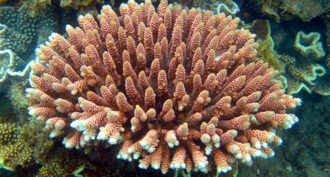 Oceans
OceansOcean heat waves are on the rise — and killing coral
Ocean heat waves are becoming hotter and more frequent. And one can be blamed for the 2016 coral deaths on the Great Barrier Reef.
By Dan Garisto and Carolyn Gramling -
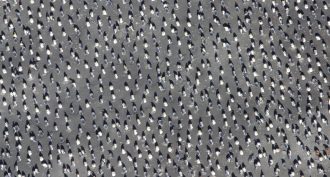 Animals
AnimalsIn a colony, king penguins act like a liquid
Is this a living liquid? King penguins move around within their colonies, clearing out some space, and then refilling it. That behavior resembles a liquid, scientists conclude.
By Dan Garisto -
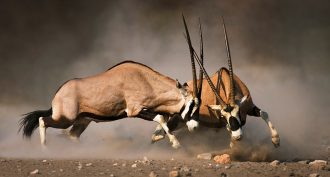 Life
LifeFighting ‘like an animal’ may not be what you expect
Evolution has produced a broad range of conflict styles. And some of the best examples come from outside the world of the familiar.
By Susan Milius -
 Plants
PlantsScientists Say: Invasive species
These are foreign species that are causing problems for native organisms and ecosystems.
-
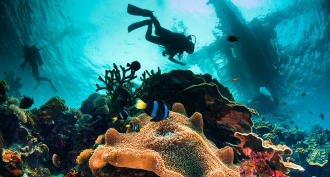 Chemistry
ChemistryCool Jobs: Diving for new medicines
Scientists mix research with underwater adventure as they search the oceans for new chemicals to treat infections, cancer and more.
-
 Animals
AnimalsNature shows how dragons might breathe fire
Fire-breathing dragons can’t live anywhere outside of a book or TV. But nature provides some guidance as to how they might get their flames. If they existed, anyway.
-
 Animals
AnimalsCan anything stop the big pig invasion?
Millions of wild pigs roam North America, causing billions of dollars in damage every year. Scientists are looking for new ways to stop the swine.
-
 Environment
EnvironmentLight at night lengthens how long birds can spread West Nile virus
Light at night prolongs the time it takes these birds to knock out a West Nile infection. Mosquitoes that bite them during this time can pick up and spread their virus to others — even people.
By Susan Milius -
 Animals
AnimalsThe secrets of super-slurper bat tongues
Tiny hair-like structures greatly boost the ability of some bats to slurp up nectar from flowers.
By Sid Perkins